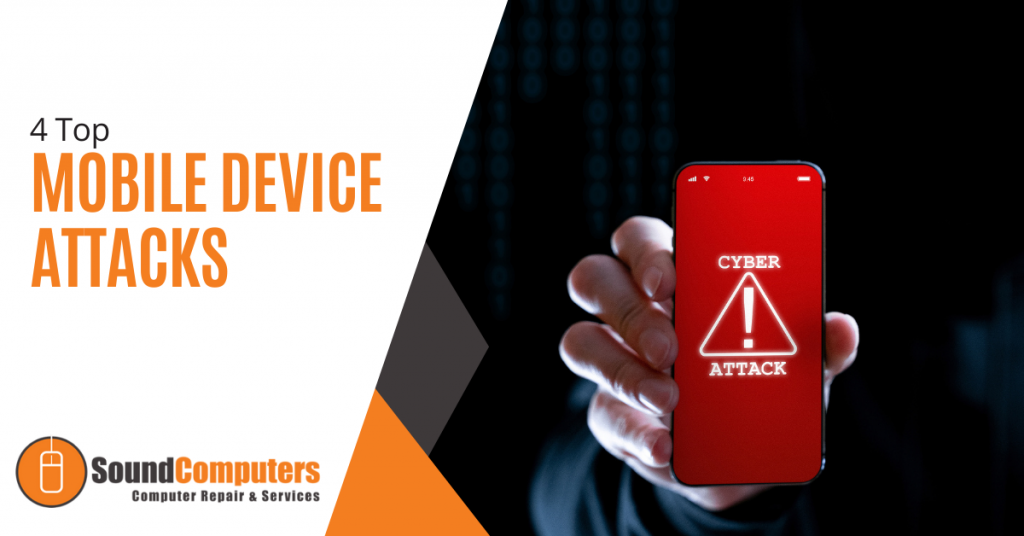
The mobile workforce has come into its own over the last 18 months. After COVID-19 forced organizations to rethink their workplace operations, remote and mobile working quickly became a part of day-to-day business. It’s a trend that is set to skyrocket in the coming years. The International Data Corporation (IDC) believes that by 2024, 60% of the US workforce will be considered mobile workers.
Enabling mobile working has a number of benefits. Enhanced productivity, better employee satisfaction and improved customer service levels are all positive changes. However, mobile working is not without its security risks.
According to research, almost every organization experienced at least one mobile malware attack in 2020. Whether your employees use corporate mobiles or access workplace applications and data from their own phones, the risks are the same. You will need to have a strategy in place to tackle them.
However, you can only address risks once you understand them. Here are the top mobile device cyber attacks that you need to be aware of.
1. Malicious Applications
46% of organizations said that at least one employee downloaded a malicious mobile application that threatened their company’s networks and data in 2020. As applications become more intrinsic to workplace productivity, this threat is increasing.
Malicious applications appear like genuine ones on the app store. However, they actually have malware embedded. This malware can be used for several nefarious purposes such as stealing sensitive data or launching ransomware.
The tricky thing about malicious applications is that they are hard to spot. Hackers design these apps to impersonate legitimate ones. It takes a trained eye to see if the application is phony.
The best way to fight this threat is through education and policies. You should teach your employees about the risks of malicious apps through staff training exercises and backup this training with staff policies that safelist specific applications.
If your employees use corporate mobile phones, you may want to consider launching a mobile device management (MDM) solution. This enables you to control the applications that your people download.
2. Network Spoofing
Network spoofing is an attack in which cybercriminals create fake Wi-Fi network access points. These points look exactly like real ones and tend to be placed in busy locations like airports and coffee shops. The access points will have unsuspecting names like “Starbucks Free Wi-Fi” or “Airport Wi-Fi” to trick people into clicking on them.
When the user creates an account through the Wi-Fi spot, all of the details that they share will go to a hacker who can then use details for fraud or credentials compromise.
As with malicious apps, education is essential here. Ensure that your employees only log on to verified Wi-Fi spots. You should also mandate that they use unique passwords for each of their accounts. That way when a hacker collects the password your employee shares, they won’t be able to use it elsewhere to gain access to their other accounts.
3. Theft
Mobile devices are small and easy to lose. If your employees aren’t careful, their devices could easily fall into the wrong hands. It is vital that your employees bolster their device protection. They should protect their device with a PIN and implement touch or face ID where possible.
Your employees should put additional passcode protections in place for applications that link to sensitive data to access these apps.
If you use MDM on your employees’ phones, you can implement a mechanism to remote wipe any lost devices to ensure that no data is compromised.
4. Man in the Middle Attacks
Another risk relating to mobile devices stems from unsecured public Wi-Fi networks. These are networks in public spaces that have not been adequately secured and allow hackers to exploit them.
Hackers will often use such networks to conduct ‘man in the middle attacks’ where they eavesdrop on any and all devices that are connected to the unsecured network. This allows them to collect sensitive information that they can use for fraud. They may even sell it directly on the dark web.
The best way to combat this threat is to mandate that your employees use a VPN when connecting to public Wi-Fi networks. VPNs act as a tunnel between your employee’s device and the corporate network and ensure that data is safe from potential eavesdropping.
Mobile Security is Imperative
Given the myriad of complex security threats out there, mobile security must be imperative for small and medium-size businesses. If you’re not sure where to start with mobile protection, speak to our team. Our friendly experts will be happy to assist you with creating a mobile device security strategy.
Get Help Putting Together A Comprehensive Mobile Security Strategy
Sound Computers can assist your Connecticut business with intelligent and comprehensive mobile security policies that will keep you protected and improve efficiency.
Contact us today to schedule a free consultation. Call 860-577-8060 or reach us online.
